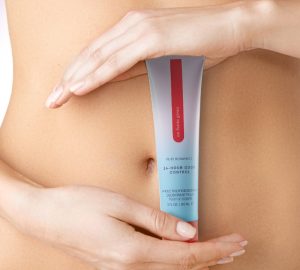The talk about Glycerin is out of control in the lubricant world. There is a lot of misinformation about this specific compound. Bloggers, social media gurus, self-proclaimed “sexperts”, or “loveologists” often link glycerin to “poison,” a “harsh chemical” or a “sugar,” all of which should be avoided under any circumstances. This has done a huge disservice to lubricants and the countless people who use them.
Glycerin is a very common additive found in many vaginal products. While some experts have classified it as a drying agent, glycerin is in fact a humectant, which is specifically designed to help retain moisture. It’s a common component of many sexual lubricants, especially those with flavors or enhancements like warming.
Some may feel that using a product with glycerin could make them more susceptible to yeast infection or bacterial vaginosis infections. More scientific data is needed to determine if there is a link. While some animal-based studies show that glycerin may impact animal vaginal and rectal mucosa, there aren’t enough human studies.
Glycerin causing sexually transmitted or candida yeast infections is a commonly held misperception. Vaginal yeast infections may develop for a variety of reasons, including hormonal imbalances and/or repetitive antibiotic use. A combination of several risk factors can be the tipping point for a potential infection. Glycerin may just be one on a long list of risk factors that lead to a yeast infection. Not everyone who uses a glycerin-containing lubricant is destined to develop a candida infection. Alternatively, using a glycerin-free lubricant won’t prevent a yeast infection.
If you are prone to or at a high risk for candida vaginal infections (like those with uncontrolled diabetes), consider avoiding glycerin products.
In reality, all glycerins are not created equal. There are many types. Some are made from animal fat while others are made from vegetable oil. High-quality glycerin, that is medical grade and ultra-pure, is an excellent component for water-based lubricants. Glycerin is long lasting, does not leave any crusty or filmy residue, and is natural.
Glycerin is not poison to the vagina. Often, poor quality or impure ingredients that are in many lubricants give it a bad reputation. In the US, most over the counter lubricants remain unregulated by the Food and Drug Administration
Not all types of glycerin’s are created equal, and many manufacturers do not disclose the source of their glycerin.
To make matters worse, studies are all over the place. One may link glycerin as a cause of infection, whereas another may dispute any linkage. In an animal study, no obvious change to the vaginal flora of rhesus monkeys was noted from the use of sexual enhancement gel, despite the product’s rather high glycerin content.
The bottom line is more hard-core scientific data is needed to clearly define if glycerin has any direct or indirect effect on your vaginal balance. Learn more about your lubricants’ ingredients and find what is best for you. Know your body! You have plenty of options. Pick the one that makes you feel sexy and flirty so you can fulfill all your bedroom fantasies.
Cancer the Romancer
Date Ideas from Sam & Maya at LEQ!
Michael Krychman
MDCMHis special interests include menopausal health, hormone therapy, sexual pain disorders, and loss of libido, chronic medical illness and medical devices and their impact on female sexual function. He is a well-known speaker who is featured locally, nationally and internationally. He has published many articles in peer-reviewed journals and has been featured in many scientific journals and lay magazines. Dr Krychman is an active reviewer for the Journal of Sexual Medicine. He was the Scientific Chairman for the 2010 International Society for the Study of Women’s Sexual Health annual educational meeting. He is an active member in good standing in North American Menopause (NAMS), International Society sexual Medicine (ISSM), European Society Sexual Medicine (ESSM), International Society Study of Women’s Sexual Health (ISSWSH), American Society of Sex Educators, Counselors and Therapists (AASECT) and American College of Obstetricians and Gynecologists (ACOG). He was a member of the Standard Committee for ISSM and has been a guest professor at the ESSM Sexual Medicine Summer School in Oxford, England. He was the creator of the recent WISH Initiative (Women’ Initiative on Sexual Health: www.yourvoiceyourwish.com) and the 2013 recipient of the WISH Outstanding Achievement award given by the ISSWSH. He is also on the professional advisory board for the Patty Brisben Foundation.
Dr. Krychman’s has published 7 books including his most recent one: The Sexual Spark, 20 Essential Exercises to Reignite the Passion, 100 Questions & Answers for Women Living with Cancer: A Practical Guide to Female Cancer Survivorship has been recently published, 100 Questions and Answers about Women’s Sexual Wellness and Vitality and Breast cancer Sexuality, Sensuality and Intimacy. He has been featured on the Today show and in the New York Times and US News and World Report World Report, The Wall Street Journal, New York Times, Health Magazine and many others. He was named one of Orange County Top Doctors for 2015 and 2016 in Menopause, Sexual Dysfunction and Vulvar Pain. In 2019 and again in 2020, he has been named an Orange County Physician of Excellence by Orange Coast Magazine in Survivorship, Sexual Medicine and Menopause.









